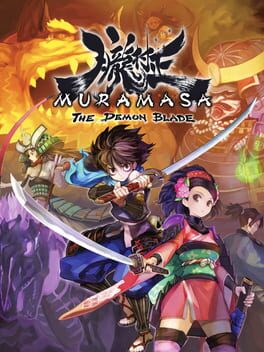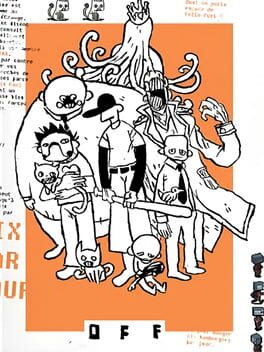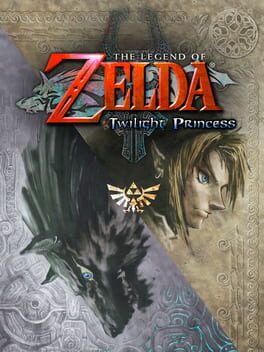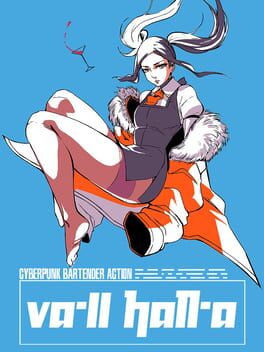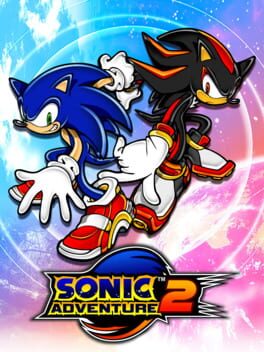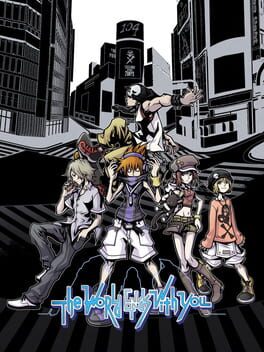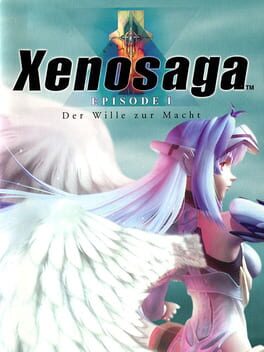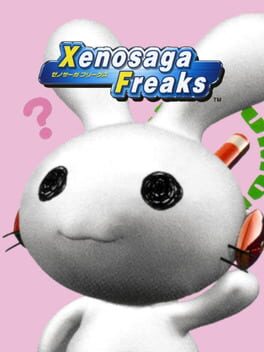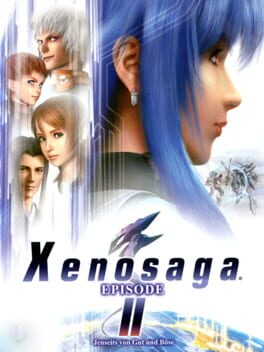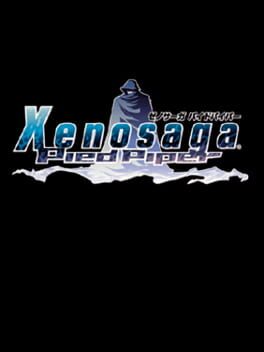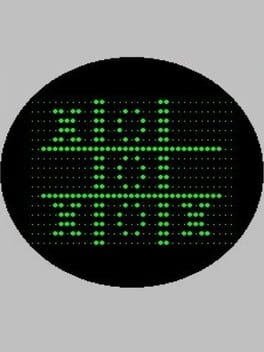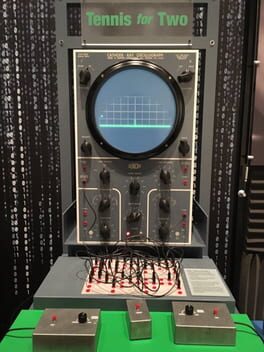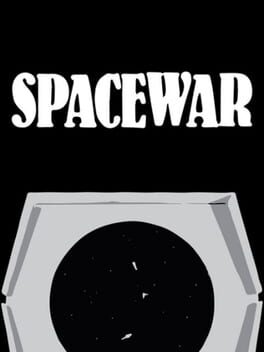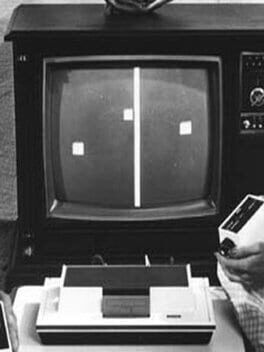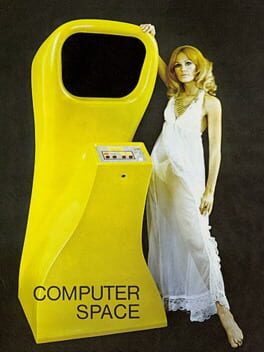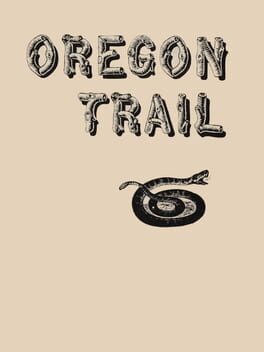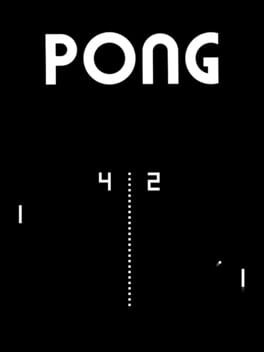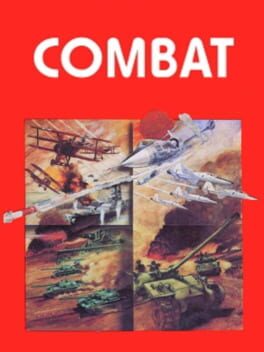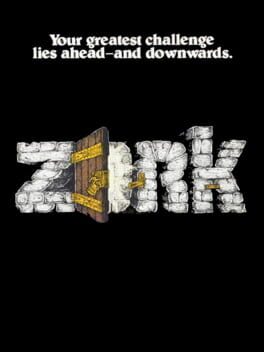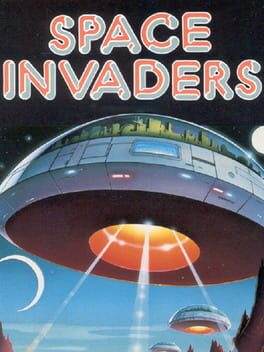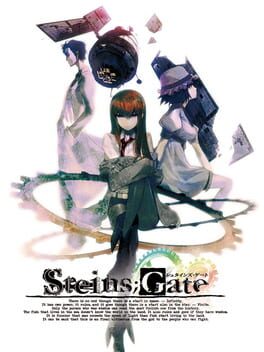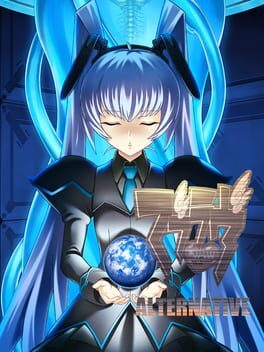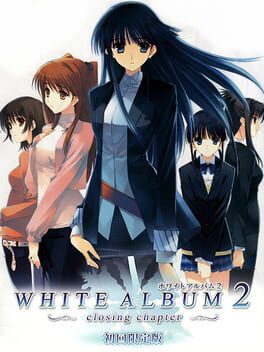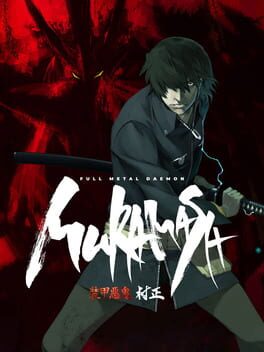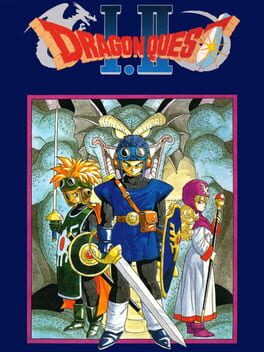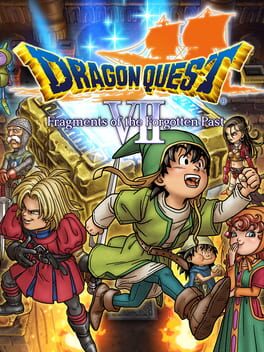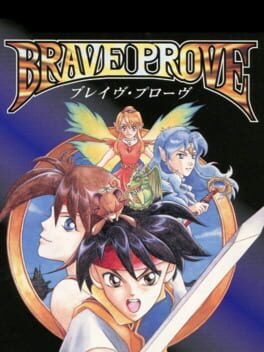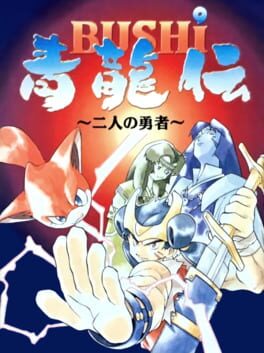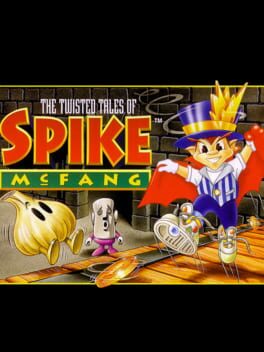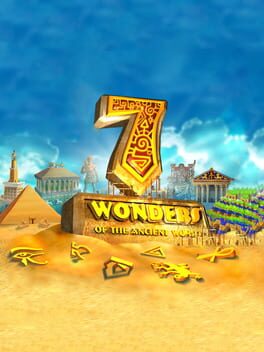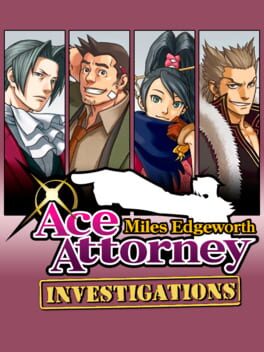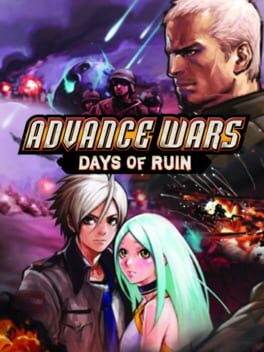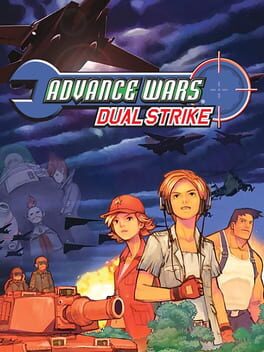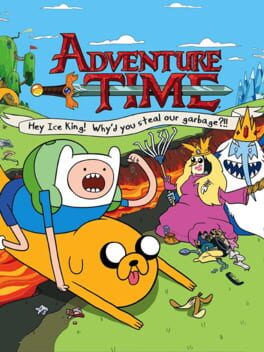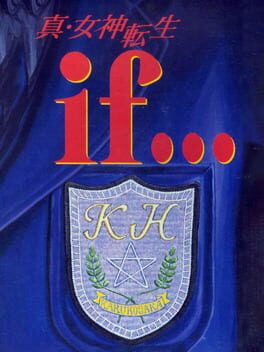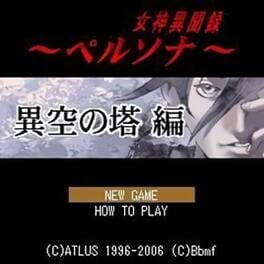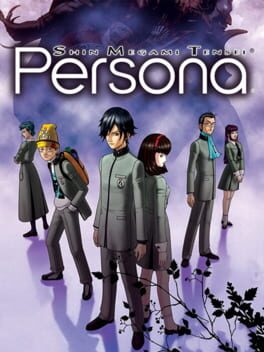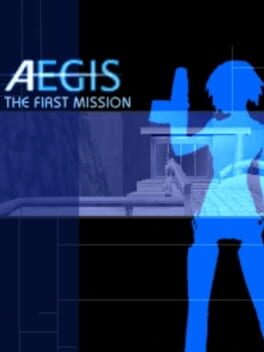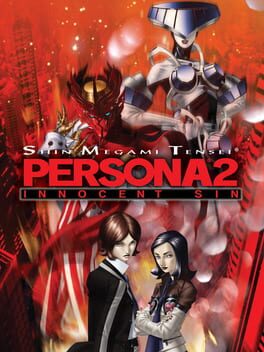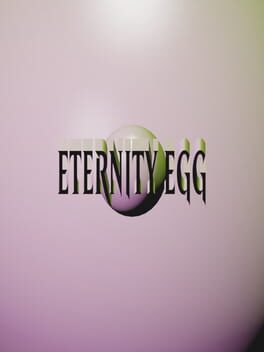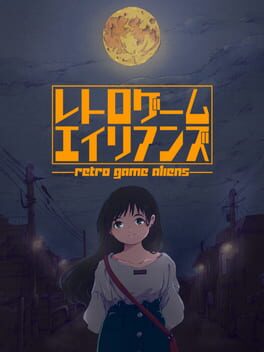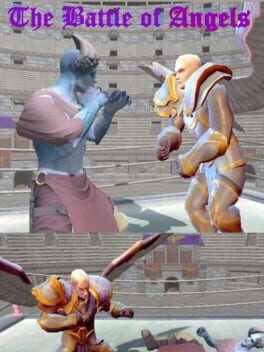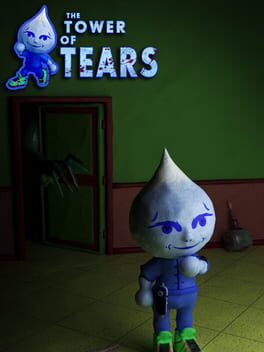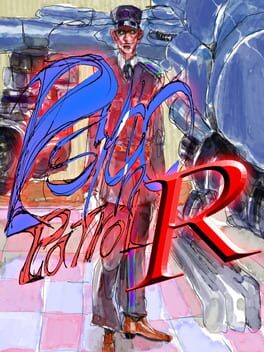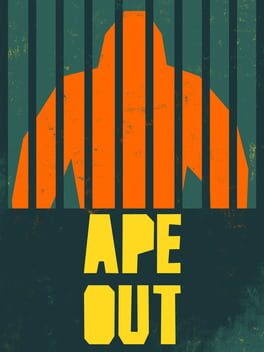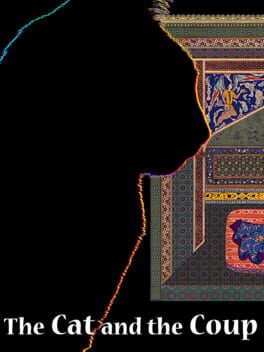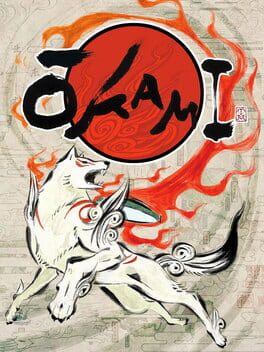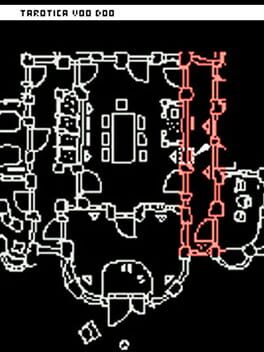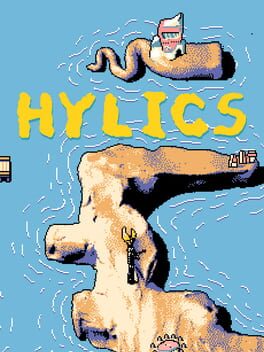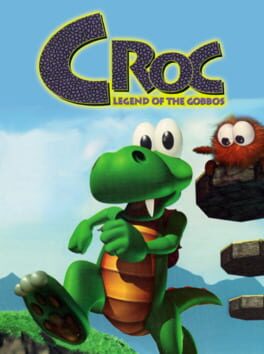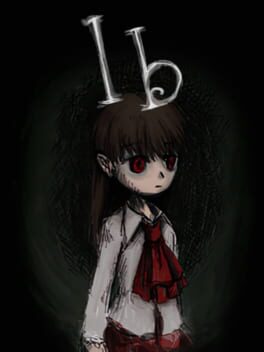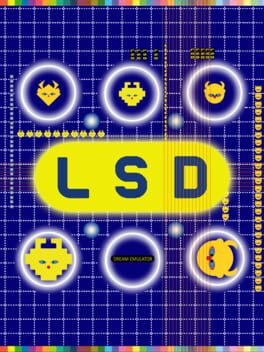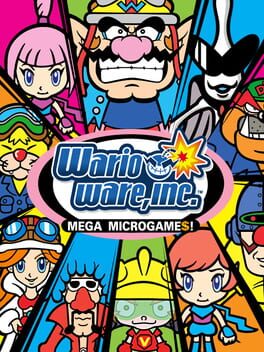TripleFFFUser
10 reviews liked by TripleFFFUser
I played the Wii version on Dolphin emulator, using a Gamecube controller.
The game has 2 storylines, and you have to make a choice when you begin your adventure. You either start playing as the Princess Momohime, or the Ninja Kisuke.
I completed the entirety of Momohime's story, and then played about half of Kisuke's story, but I grew tired of the game before I could finish it and get all the endings. So I watched the rest on YouTube.
Muramasa is a Hack and Slash set in feudal Japan, with an absolutely gorgeous artstyle.
The characters all look so pretty, and the animations are extremely stylish whenever you run or swing your sword around in battle.
Slashing hordes of enemies from left to right, sending them into the air, and cutting through all of them at the same time using the quick draw is so exhilarating.
It would have been great to have more enemies with different patterns to make the combat less repetitive. Some of the environments & layouts are also recycled, stressing even more the repetitiveness of the game.
That's weird how they handled the regular encounters.
When you die during a fight, you respawn immediatly, but the enemies don't. So the game deprives you of all this exp, which is required to earn spirits & souls to unlock more weapons.
I'm still not sure how to feel about it. On one hand, it's a bummer to miss out on this exp, but on the other hand, it allows you to progress in the story more rapidly.
I really dig the use of japanese folklore. Muramasa is full of those myths & traditions, with kitsunes, spirits and onis.
There's an evil spirit taking ownership of Momohime's body during most of the game. The NPCs often mention ghost apparitions, possessions, and you even travel through Heaven & Hell. There are also mentions of Buddha and Amitabha.
All these legendary elements made for a really fascinating adventure.
The soundtrack is pretty nice overall, and it does have some heavy hitters. I loved "Womanizing", "Dim Twilight" and "Deep in Mountain and Valley"
Now that I've seen the 2 storylines more or less, I think I enjoy Kisuke's story more. I wonder if I would have prefered starting the game with him. There are more interesting moments during his storyline, and I liked the encounters with Torahime a lot.
I'll try coming back to this game later on to do the DLCs 👌
----------Playtime & Completion----------
[Started on January 22th & stopped on February 3rd 2024]
Playtime: 12 hours
I finished Momohime's story and stopped halfway through Kisuke's story, at Sayo Boss fight. I watched the rest of the game including the endings on YouTube.
The game has 2 storylines, and you have to make a choice when you begin your adventure. You either start playing as the Princess Momohime, or the Ninja Kisuke.
I completed the entirety of Momohime's story, and then played about half of Kisuke's story, but I grew tired of the game before I could finish it and get all the endings. So I watched the rest on YouTube.
Muramasa is a Hack and Slash set in feudal Japan, with an absolutely gorgeous artstyle.
The characters all look so pretty, and the animations are extremely stylish whenever you run or swing your sword around in battle.
Slashing hordes of enemies from left to right, sending them into the air, and cutting through all of them at the same time using the quick draw is so exhilarating.
It would have been great to have more enemies with different patterns to make the combat less repetitive. Some of the environments & layouts are also recycled, stressing even more the repetitiveness of the game.
That's weird how they handled the regular encounters.
When you die during a fight, you respawn immediatly, but the enemies don't. So the game deprives you of all this exp, which is required to earn spirits & souls to unlock more weapons.
I'm still not sure how to feel about it. On one hand, it's a bummer to miss out on this exp, but on the other hand, it allows you to progress in the story more rapidly.
I really dig the use of japanese folklore. Muramasa is full of those myths & traditions, with kitsunes, spirits and onis.
There's an evil spirit taking ownership of Momohime's body during most of the game. The NPCs often mention ghost apparitions, possessions, and you even travel through Heaven & Hell. There are also mentions of Buddha and Amitabha.
All these legendary elements made for a really fascinating adventure.
The soundtrack is pretty nice overall, and it does have some heavy hitters. I loved "Womanizing", "Dim Twilight" and "Deep in Mountain and Valley"
Now that I've seen the 2 storylines more or less, I think I enjoy Kisuke's story more. I wonder if I would have prefered starting the game with him. There are more interesting moments during his storyline, and I liked the encounters with Torahime a lot.
I'll try coming back to this game later on to do the DLCs 👌
----------Playtime & Completion----------
[Started on January 22th & stopped on February 3rd 2024]
Playtime: 12 hours
I finished Momohime's story and stopped halfway through Kisuke's story, at Sayo Boss fight. I watched the rest of the game including the endings on YouTube.
Undertale
2015
This review contains spoilers
Undertale tells a story about humans and monsters. An emotional and interactive story that has you go across unique well designed worlds. One of the greatest soundtracks of all time. God, the music is so good it deserves to be famous on its own. The characters are all so well written and they feel like real people, with believable motives and personalities. The amount of charm and humor throughout the entire game is insane. The art is so well done and so charming in its simplicity. The battle mechanics are really fun, a good way to stand out as an rpg and keep the gameplay exciting and fresh, never knowing what’s coming next. It’s really fun. Undertale does everything right. Even if it didn’t have multiple routes, this game still would’ve been top tier.
However there is another element to the story, a recurring theme throughout the whole game, existing as a looming feeling. It’s not hard to find out this game is a sort of choose your own adventure, one where your actions have consequences. It’s not hard to see that you can spare any enemy, and that the monsters are real people and killing them has real consequences. But everytime you think you have this game figured out, it’s always one step ahead of you.
This game could not have existed as a movie or a book, it's something that could only exist as a game. It has a relationship with the player unlike any other game. Every different way you could play it is addressed by the game, and it becomes a story about you. The amount of times I've played it over and over again just seeing everything I could do. By doing that, I'm the same as flowey. It doesn't just have consequences for every action you do, it talks to you about it. When you play Undertale, you are a character, and you interact with it in a unique way from any other game. Your experience doesn't end when you beat the game. Even more than the amount of routes, every player's experience is different, the game will address you uniquely based on however you play.
When my girlfriend played this game with me, she hadn't played very many other rpgs before. She understood the world's rules more naturally, not having as much of a status quo to break from in the first place. Without ever telling her about the multiple endings, she chose not to kill anyone, at times begging me to tell her how to do the battle without pressing attack. She completed the pacifist run, and then never touched the game again, or looked at anything online. Her experience was only the pacifist run and nothing else. And she left the game satisfied and happy. I was confused, and I kinda wanted her to play it again so I could see how she handled the genocide run. I was curious about it when I first played and I didn't understand how she could just stop before she had seen everything. But that's not the right way to think about it, why would she want to go back and play the whole game again just to murder all the friends she had gotten so close to, only to soil the good feeling from the first ending, knowing of the genocide run, it makes it more artificial, it sacrafices the emotional value and turns it into more of a "game" of just being curious and trying everything. Not being able to accept the good ending it gave you, just digging for more and more gameplay at any cost. That's exactly what flowey did, and most players left this game just as corrupted as him. Not my girlfriend, she left with a happy ending, and only a good perception of the world and characters. I think this is a rare way to play this game, but it just goes to show how this game is so different to so many different people. The game is partially what is put there, but mostly how you choose to interact with it. It tells you an amazing emotional story about monsters and humans and love and hatred, but more than that, it tells a story about you.
However there is another element to the story, a recurring theme throughout the whole game, existing as a looming feeling. It’s not hard to find out this game is a sort of choose your own adventure, one where your actions have consequences. It’s not hard to see that you can spare any enemy, and that the monsters are real people and killing them has real consequences. But everytime you think you have this game figured out, it’s always one step ahead of you.
This game could not have existed as a movie or a book, it's something that could only exist as a game. It has a relationship with the player unlike any other game. Every different way you could play it is addressed by the game, and it becomes a story about you. The amount of times I've played it over and over again just seeing everything I could do. By doing that, I'm the same as flowey. It doesn't just have consequences for every action you do, it talks to you about it. When you play Undertale, you are a character, and you interact with it in a unique way from any other game. Your experience doesn't end when you beat the game. Even more than the amount of routes, every player's experience is different, the game will address you uniquely based on however you play.
When my girlfriend played this game with me, she hadn't played very many other rpgs before. She understood the world's rules more naturally, not having as much of a status quo to break from in the first place. Without ever telling her about the multiple endings, she chose not to kill anyone, at times begging me to tell her how to do the battle without pressing attack. She completed the pacifist run, and then never touched the game again, or looked at anything online. Her experience was only the pacifist run and nothing else. And she left the game satisfied and happy. I was confused, and I kinda wanted her to play it again so I could see how she handled the genocide run. I was curious about it when I first played and I didn't understand how she could just stop before she had seen everything. But that's not the right way to think about it, why would she want to go back and play the whole game again just to murder all the friends she had gotten so close to, only to soil the good feeling from the first ending, knowing of the genocide run, it makes it more artificial, it sacrafices the emotional value and turns it into more of a "game" of just being curious and trying everything. Not being able to accept the good ending it gave you, just digging for more and more gameplay at any cost. That's exactly what flowey did, and most players left this game just as corrupted as him. Not my girlfriend, she left with a happy ending, and only a good perception of the world and characters. I think this is a rare way to play this game, but it just goes to show how this game is so different to so many different people. The game is partially what is put there, but mostly how you choose to interact with it. It tells you an amazing emotional story about monsters and humans and love and hatred, but more than that, it tells a story about you.
Off
2008
i’ve kind of lost the motivation to write anything long-form (or really any length) on this site but i do want to reflect on this one a little bit, and i hope you’ll excuse me if i sound like i’m superficially regurgitating what others have already shared.
anyway fatamoru is undeniably human at the end of the day; about how people aren’t born their current selves (whether they be “good” or “bad” in the eyes of some) and that there are always underlying circumstances that turned them into who they are today. the truth is a “weapon” — but not weapon-ized against others as it can so conspicuously be within popular works in this genre — no, the truth is not just something for an opposing force to use against those who experienced it, rather more deeply as an empathetic connection between people that is only a weapon if those who experienced it find resolve in burying it apprehensively. accepting reality and facing it head-on can be just as painful as the reality itself. no matter how dark it gets… there is always some light at the end of the tunnel. fatamoru is shockingly depressing and at times just absolutely fucking soul-crushing. at the same time, through all of the tragedy that it establishes, it still ignites some hopeful inspiration. everything does maintain a believable — and oftentimes relatable — level of realism as well that is probably the core of what makes the narrative hurt as much as it does. everything also has purpose: plenty of red herrings or details that spring up in the first half seem impossibly linked to the story but become completely logical and crucial inclusions by the end. i’m at a loss of what else i could mention so i guess i can briefly praise the characters. i don’t think there was a single one i didn’t find some form of relatability in or flat out didn’t like. they’re all distinctly special in their own ways. each with personal strategies to try and stay grounded among a world so cruel in their eyes. the value of perspective is a central theme throughout. this story fucked me up in more ways than one and i don’t think this will be an experience i’ll easily forget. i do still want to think about it more. this came to me at the right time in my life similarly to something like twewy when i played that a few years ago. shoutouts to the soundtrack for introducing me to “neoclassical darkwave.”
anyway fatamoru is undeniably human at the end of the day; about how people aren’t born their current selves (whether they be “good” or “bad” in the eyes of some) and that there are always underlying circumstances that turned them into who they are today. the truth is a “weapon” — but not weapon-ized against others as it can so conspicuously be within popular works in this genre — no, the truth is not just something for an opposing force to use against those who experienced it, rather more deeply as an empathetic connection between people that is only a weapon if those who experienced it find resolve in burying it apprehensively. accepting reality and facing it head-on can be just as painful as the reality itself. no matter how dark it gets… there is always some light at the end of the tunnel. fatamoru is shockingly depressing and at times just absolutely fucking soul-crushing. at the same time, through all of the tragedy that it establishes, it still ignites some hopeful inspiration. everything does maintain a believable — and oftentimes relatable — level of realism as well that is probably the core of what makes the narrative hurt as much as it does. everything also has purpose: plenty of red herrings or details that spring up in the first half seem impossibly linked to the story but become completely logical and crucial inclusions by the end. i’m at a loss of what else i could mention so i guess i can briefly praise the characters. i don’t think there was a single one i didn’t find some form of relatability in or flat out didn’t like. they’re all distinctly special in their own ways. each with personal strategies to try and stay grounded among a world so cruel in their eyes. the value of perspective is a central theme throughout. this story fucked me up in more ways than one and i don’t think this will be an experience i’ll easily forget. i do still want to think about it more. this came to me at the right time in my life similarly to something like twewy when i played that a few years ago. shoutouts to the soundtrack for introducing me to “neoclassical darkwave.”
Persona 3 FES
2007
Only did The Journey aka the base game, not the Answer (will play in due time). Still gonna logged it as completed though.
-I never want to see Tartarus ever again
-Best cast in a modern Persona game. (Almost) Everyone gets relatively the same focus throughout the game, and they are not ditched after their first introduction arc. (Akihiko, Aigis, Yukari, Mitsuru all my beloved)
-While I think this is a great great story, it's delivered poorly, and u don't get to do much during the first half of the game
-There's a certain plot twist that sucks, and that character sucks too.
-Climax and ending are beautiful and wrap up everything accordingly to the game's themes
-All Social Link events kinda suck (except Akinari)
-Game is full of bumps and low points but it always takes priority and focuses on what it wants to tell with a sincerity that I don't think I got from the later entries.
-I never want to see Tartarus ever again
-Best cast in a modern Persona game. (Almost) Everyone gets relatively the same focus throughout the game, and they are not ditched after their first introduction arc. (Akihiko, Aigis, Yukari, Mitsuru all my beloved)
-While I think this is a great great story, it's delivered poorly, and u don't get to do much during the first half of the game
-There's a certain plot twist that sucks, and that character sucks too.
-Climax and ending are beautiful and wrap up everything accordingly to the game's themes
-All Social Link events kinda suck (except Akinari)
-Game is full of bumps and low points but it always takes priority and focuses on what it wants to tell with a sincerity that I don't think I got from the later entries.
This review contains spoilers
My first Zelda game !
The prologue focuses on Link's life in his hometown, and his relation with the other villagers, especially the other kids. The game immediatly stunned me with its music and scenery. The vibe in the Faron Woods is immaculate, and I liked the twilight aesthetics in the opening scene.
The game quickly takes a sharp turn after the invasion of Link's hometown, with his transformation into a wolf; and mostly, the introduction of Midna & the Twilight realm.
I like having a companion in my singleplayer games because it makes me feel less lonely, and Midna was such a great partner. I loved her sassy attitude, and her development throughout the game was heartwarming.
Once I beat the second dungeon, I was more familiar with the zelda formula: the use of keys & backtracking, the map that you need to find to reveal the hidden treasure chests, the new item that you get after beating the mini Boss, etc... it quickly clicked with me. Goron Mines was a great dungeon by the way. I loved the 2 boss fights, both were really cinematic. And I liked the mechanic with the Iron Boots.
After that, I started to spend more time wandering around. I quickly became fond of the openworld, even though some regions were a bit empty, like the Gerudo Desert and the Snowpeaks.
The two themes that you hear in Hyrule Fields are probably my two favorite musics in Twilight Princess. Hyrule Fields night version especially, it's so eerie...
I've always enjoyed going around the hyrule fields after the sun set, solely because of that theme. And riding Epona felt nice. It was a good alternative to fast travel.
Lakebed Temple is where puzzles started to get really spicy. I had a hard time figuring out the layout of the dungeon with the staircases and the flowing water. Despite the epicness of the Boss, I have to admit I was overwhelmed by its non-existent difficulty. In its second phase, the Boss literally doesn't even attack you...
You get a really fun item in Arbiter's Grounds: the Spinner. Sadly you don't get to use it a lot outside of the dungeon, but it was still cool to use a beyblade to kill enemies.
Stallord is the best Boss in the game and it made a great use of the new item.
Palace of Twilight was the least interesting dungeon. It's short, and I expected more from it in terms of puzzles & enemies variety. And its aesthetics weren't interesting enough.
The parts where you're chased by those flying hands were overwhelming. Zant was a great boss fight tho, I liked the idea of turning him into a Boss rush.
Hyrule Castle was such a great final dungeon. Unlike the previous ones, it focuses less on puzzles and more on combat. For once, there were some tough fights, like the moment when you have to beat 2 Darknuts at the same time. And the final encounter against Ganondorf with its multiple phases was neat. The swordfight was fucking epic.
Double Clawshots was my favorite item, and its use in City in the Sky was so satisfying. Amazing boss fight by the way!
But to be honest, there isn't a single bad or mediocre boss in this game. All of them are amazing.
The wolf form was disappointing. It would have been great if Wolf Link acquired new moves throughout the game, just like Human Link.
The conclusion to Midna's storyline was great and almost made me tear up!
----------Playtime & Completion----------
[Played in February 2021]
Playtime: 50 hours
Main story complete. I also did every Howling Stone and collected every Golden Bug.
The prologue focuses on Link's life in his hometown, and his relation with the other villagers, especially the other kids. The game immediatly stunned me with its music and scenery. The vibe in the Faron Woods is immaculate, and I liked the twilight aesthetics in the opening scene.
The game quickly takes a sharp turn after the invasion of Link's hometown, with his transformation into a wolf; and mostly, the introduction of Midna & the Twilight realm.
I like having a companion in my singleplayer games because it makes me feel less lonely, and Midna was such a great partner. I loved her sassy attitude, and her development throughout the game was heartwarming.
Once I beat the second dungeon, I was more familiar with the zelda formula: the use of keys & backtracking, the map that you need to find to reveal the hidden treasure chests, the new item that you get after beating the mini Boss, etc... it quickly clicked with me. Goron Mines was a great dungeon by the way. I loved the 2 boss fights, both were really cinematic. And I liked the mechanic with the Iron Boots.
After that, I started to spend more time wandering around. I quickly became fond of the openworld, even though some regions were a bit empty, like the Gerudo Desert and the Snowpeaks.
The two themes that you hear in Hyrule Fields are probably my two favorite musics in Twilight Princess. Hyrule Fields night version especially, it's so eerie...
I've always enjoyed going around the hyrule fields after the sun set, solely because of that theme. And riding Epona felt nice. It was a good alternative to fast travel.
Lakebed Temple is where puzzles started to get really spicy. I had a hard time figuring out the layout of the dungeon with the staircases and the flowing water. Despite the epicness of the Boss, I have to admit I was overwhelmed by its non-existent difficulty. In its second phase, the Boss literally doesn't even attack you...
You get a really fun item in Arbiter's Grounds: the Spinner. Sadly you don't get to use it a lot outside of the dungeon, but it was still cool to use a beyblade to kill enemies.
Stallord is the best Boss in the game and it made a great use of the new item.
Palace of Twilight was the least interesting dungeon. It's short, and I expected more from it in terms of puzzles & enemies variety. And its aesthetics weren't interesting enough.
The parts where you're chased by those flying hands were overwhelming. Zant was a great boss fight tho, I liked the idea of turning him into a Boss rush.
Hyrule Castle was such a great final dungeon. Unlike the previous ones, it focuses less on puzzles and more on combat. For once, there were some tough fights, like the moment when you have to beat 2 Darknuts at the same time. And the final encounter against Ganondorf with its multiple phases was neat. The swordfight was fucking epic.
Double Clawshots was my favorite item, and its use in City in the Sky was so satisfying. Amazing boss fight by the way!
But to be honest, there isn't a single bad or mediocre boss in this game. All of them are amazing.
The wolf form was disappointing. It would have been great if Wolf Link acquired new moves throughout the game, just like Human Link.
The conclusion to Midna's storyline was great and almost made me tear up!
----------Playtime & Completion----------
[Played in February 2021]
Playtime: 50 hours
Main story complete. I also did every Howling Stone and collected every Golden Bug.
In my quest to obtain as many physical copies for games as I could, I bought a Limited Run copy of VA-11 Hall-A on Amazon for about 95 dollars—a 600% markup—and somehow, not once did I doubt that purchase. I automatically assumed that I would love it. I must be psychic, because this game was worth EVERY. DAMN. CENT OF THAT. This is just peak fiction. It doesn’t get any better than this, and I’ll tell you why. Time to mix drinks and change lives.
Pros:
- The storyline of VA-11 Hall-A is so different from being a generic depressing cyberpunk story because the stories of all-powerful corporations, runaway technological development, and the proliferation of the sex industry are told not via those topics themselves, but through the people whom they affect. You get to hear narratives straight from the mouths of those who create them. Trust me, nothing sells “this place is morally bankrupt” more than serving a drink to an android sex worker who holds off on making her child-like body match her mental age because she gets to appeal to a certain…subset of clients. I lived in FEAR of this game ending because of how good the writing is.
- Furthermore, what makes this presentation so good is that it’s not all doom and gloom. While you might not think it based on what I wrote above, VA-11 Hall-A’s writing is actually very light-hearted and humorous (save for a few dire events). These patrons are just trying to live their lives the best they can, and many of them are actually succeeding. The dialogue is just top notch; it's hilarious and thought-provoking at the same time. Nothing I could write here would do it justice. Just go watch a Day 1 playthrough, it’s amazing.
- The characters you meet come from a variety of different backgrounds and no two are the same. Of course, some get more screen time than others as they become regulars in the bar, but I can honestly say no character is boring. They all slap. Dorothy, Gil, Dana, Alma, Sei, Stella, Mario, Betty, Deal, yeah they all go hard, full stop. I could listen to them speak for literal hours.
- And the player character, Jill…she is one of the best written game protagonists I have ever seen. She has a great personality, great lines, great design, she has goals, aspirations, regrets, emotions, and the arc she goes through during this game is spectacular and is capped off in such a satisfying way. This game had me going through the MOTIONS as I played it, all thanks to Jill. And while this is purely subjective, parts of her backstory hit home because they are things that I’VE felt and went through, and that just made me love her even more.
- While VA-11 Hall-A is a visual novel, and thus relies mostly on writing rather than gameplay, I really appreciated its bartending gameplay. What makes it so cool is that what Jill’s patrons say can change at certain points depending on what drinks you make, and in turn that can affect what note the game ends on. Such a dope premise. After each shift, you can also buy items that prevent Jill from becoming distracted at work (and that decorate her apartment), and indeed, if you can’t, the player will actually have to remember what patrons said they wanted, because Jill becomes too distracted to repeat the order to herself. I felt like a genius when I realized that one.
- After each day, you can also mess with apps on Jill’s phone in her apartment, two of which are notable. The first is The Augmented Eye, a news app, which includes both background lore for the setting of Glitch City, and more prominent events that will then be referenced in actual dialogue during shifts! It’s not THAT crazy of a mechanic but I was pleasantly surprised to see it. Danger/u/ is the second, and it's a slightly safer for work version of 4chan. I don’t even think I need to say any more, it’s hilarious.
- The artstyle is super cool as well; it’s reminiscent of older computer graphics. I think the developers even specify that it’s based on the PC-98, which fits the cyberpunk theme perfectly. And the music? I know I constantly praise game soundtracks but this one might be my all-time favorite. Synthpop and electronic music? I eat that up. The musician for this game really crafted some yummy tracks. Bonus points for VA-11 Hall-A actually letting you pick a playlist of twelve songs each time you play.
- One more small praise: when you first boot up the game, it recommends that you get a drink as you play it. And yes, I had some jack and coke for two of my sessions. That’s what I call IMMERSION.
Cons:
- I really don’t have anything major to say as a negative. If I had to say SOMETHING...maybe the developers could have made it a bit easier to tell when the drink you serve can affect the outcome? There were only a few circumstances where I for sure knew what I picked was going to change something, and that was because of story reasons. Regardless, this REALLY did not impact my experience in the slightest, and I know that there were parts I could have changed something but didn't; I just didn't know what to do specifically.
- Finally, an entirely subjective con is that I wish there was more Gil :(
Objective rating: 5 stars
Subjective rating: 5 stars
Pros:
- The storyline of VA-11 Hall-A is so different from being a generic depressing cyberpunk story because the stories of all-powerful corporations, runaway technological development, and the proliferation of the sex industry are told not via those topics themselves, but through the people whom they affect. You get to hear narratives straight from the mouths of those who create them. Trust me, nothing sells “this place is morally bankrupt” more than serving a drink to an android sex worker who holds off on making her child-like body match her mental age because she gets to appeal to a certain…subset of clients. I lived in FEAR of this game ending because of how good the writing is.
- Furthermore, what makes this presentation so good is that it’s not all doom and gloom. While you might not think it based on what I wrote above, VA-11 Hall-A’s writing is actually very light-hearted and humorous (save for a few dire events). These patrons are just trying to live their lives the best they can, and many of them are actually succeeding. The dialogue is just top notch; it's hilarious and thought-provoking at the same time. Nothing I could write here would do it justice. Just go watch a Day 1 playthrough, it’s amazing.
- The characters you meet come from a variety of different backgrounds and no two are the same. Of course, some get more screen time than others as they become regulars in the bar, but I can honestly say no character is boring. They all slap. Dorothy, Gil, Dana, Alma, Sei, Stella, Mario, Betty, Deal, yeah they all go hard, full stop. I could listen to them speak for literal hours.
- And the player character, Jill…she is one of the best written game protagonists I have ever seen. She has a great personality, great lines, great design, she has goals, aspirations, regrets, emotions, and the arc she goes through during this game is spectacular and is capped off in such a satisfying way. This game had me going through the MOTIONS as I played it, all thanks to Jill. And while this is purely subjective, parts of her backstory hit home because they are things that I’VE felt and went through, and that just made me love her even more.
- While VA-11 Hall-A is a visual novel, and thus relies mostly on writing rather than gameplay, I really appreciated its bartending gameplay. What makes it so cool is that what Jill’s patrons say can change at certain points depending on what drinks you make, and in turn that can affect what note the game ends on. Such a dope premise. After each shift, you can also buy items that prevent Jill from becoming distracted at work (and that decorate her apartment), and indeed, if you can’t, the player will actually have to remember what patrons said they wanted, because Jill becomes too distracted to repeat the order to herself. I felt like a genius when I realized that one.
- After each day, you can also mess with apps on Jill’s phone in her apartment, two of which are notable. The first is The Augmented Eye, a news app, which includes both background lore for the setting of Glitch City, and more prominent events that will then be referenced in actual dialogue during shifts! It’s not THAT crazy of a mechanic but I was pleasantly surprised to see it. Danger/u/ is the second, and it's a slightly safer for work version of 4chan. I don’t even think I need to say any more, it’s hilarious.
- The artstyle is super cool as well; it’s reminiscent of older computer graphics. I think the developers even specify that it’s based on the PC-98, which fits the cyberpunk theme perfectly. And the music? I know I constantly praise game soundtracks but this one might be my all-time favorite. Synthpop and electronic music? I eat that up. The musician for this game really crafted some yummy tracks. Bonus points for VA-11 Hall-A actually letting you pick a playlist of twelve songs each time you play.
- One more small praise: when you first boot up the game, it recommends that you get a drink as you play it. And yes, I had some jack and coke for two of my sessions. That’s what I call IMMERSION.
Cons:
- I really don’t have anything major to say as a negative. If I had to say SOMETHING...maybe the developers could have made it a bit easier to tell when the drink you serve can affect the outcome? There were only a few circumstances where I for sure knew what I picked was going to change something, and that was because of story reasons. Regardless, this REALLY did not impact my experience in the slightest, and I know that there were parts I could have changed something but didn't; I just didn't know what to do specifically.
- Finally, an entirely subjective con is that I wish there was more Gil :(
Objective rating: 5 stars
Subjective rating: 5 stars
Sonic Adventure 2
2012
I don't care if I'm biased or not, this game is just one of my favorites ever. Yes, it's a broken buggy mess especially by today's standards but it will always have me coming back to it almost at least once a year. The music is timeless, and the characters are so nostalgic. A lot of the level theme-ing is really good and I'll never get tired of coming back to this game.
Also, chao garden is fireeee.
Also, chao garden is fireeee.
“As we go about our lives, we touch people, we see people, and interact with them; and in doing so we feel many things. Sometimes we make others happy, sometimes we hurt them, we sympathize, and we disagree. In the midst of this, we learn that people’s thoughts and feelings are not a one-way street.” - Kazuki Takahashi, creator of Yu-Gi-Oh!
I’ll be upfront, writing a review for this game is one of the hardest things I’ve ever attempted to do as a writer. Writing about this game has left me stuck in a place where I don’t know how well I can properly express it. Originally, I was planning on doing a massive overview of every aspect that the game had to offer. I wanted to go over its art direction, the character designs, the fantastic soundtrack, its unique and innovative gameplay systems, and its masterful storytelling and character work. In fact, I have multiple google docs of my attempt to do that, and I’m still really proud of what I wrote there. The point of the matter is that I wanted to do something that could do my favorite game of all time justice, something that would put everything else I’ve written on this site to shame. But once the time came to get down everything I could about the story, words… failed me. This isn’t the first time I’ve run into this issue, I’ve tried to write a massive review of Danganronpa V3: Killing Harmony, another game I hold incredibly close to my heart, and the sheer scope of that was something that collapsed on me. But this felt different, what I was trying to write just felt off about it. It’s only now that it feels like I realized what was truly going wrong with my writing for this game. It didn’t feel like I was writing to express my passion for the game like I wanted to, it felt like I was writing to prove myself. To prove that I can keep up with friends around me that were able to write longform pieces just as well as, if not better than me. To prove that the game had so many masterful elements to it, and that people around me who were tearing it down or underwhelmed more than I expected were missing what made it truly special. That line of thinking sort of put me in a rut of writing in general, which just piled on a number of things going on in my life that were putting me in a really rough spot emotionally. After seeing a couple of conversations of people having similar struggles writing about their favorite games, it helped me realize that I wasn’t really seeing what I should’ve been doing, just writing about what the game really means to me.
In a way, exploring this game set me on my own emotional journey, sort of like everyone else running through those weeks in Shibuya, enduring things that would encourage them to close themselves off, doubt themselves, do what comes naturally. In that sense, more than anything else I could write about in some 10+ page paper, the most important thing I can say about my relationship with TWEWY is that I can see a piece of myself in all of the main characters. In Shiki, I can see my struggles with constantly comparing myself to my peers and a lack of faith in who I really am. In Beat, I can see some of my own self-destructive tendencies and my own failure of being someone those closest to me can look up to. Even in Joshua, I can see how I allow myself to justify and feed into some intrusive thoughts and flawed outlooks I have in life. Trying to analyze everyone in this is like staring into shards of a mirror with a reflection that stares more deeply back at me as I put the pieces together. And at the center of it, the piece that shows the clearest reflection of me… is Neku.
On the surface, Neku is… a total dick. He’s pretty rude, closes himself off from everyone, and looks down upon the very idea of opening up. I think a lot of people interpret this at the surface level, as him being an asshole who goes through an arc of not being an asshole. However, that’s not the Neku I really see, and especially not the part I see in myself. Beyond his intense snark and attitude, I don’t see someone who’s disgusted by the idea of becoming friends and getting close to people, I see someone who’s scared of opening up to others and the risks that entails. Putting yourself out there is a pretty scary prospect, it makes you more vulnerable to people who don’t have that kind of respect for you, who want to use you for their own gain, or potentially leaving you empty if they’re gone. What he says to Shiki after the climax of day 4 doesn’t feel like him trying to make a “gotcha!” moment out of a tragic situation, he’s letting out a good chunk of his insecurities in the only way he really knows how. I wouldn’t say I’ve struggled with that quite to the degree that Neku seems to, but it’s an aspect I pretty deeply resonate with.
From the way I’ve been writing about this so far, you might think that the main piece that makes it connect with me is that they go through a lot of the same struggles that I do. While that’s definitely a part of it, what I think makes it truly special is seeing the light that enters their lives as they do take the chance to open up and put themselves out there. When Neku notices that something’s up with Shiki and allows her to open up about everything she’s been holding in, it really hits him. It gives him the revelation that all of this fear and anxiety he keeps bottled up, it’s something that all sorts of people go through. Experiencing that kind of realization for himself is the big thing that really sets him on this path of growth, that makes him really learn to care about everyone around him, despite a prevalent week 2 character’s efforts to drive him back into his old mindset. Seeing him break out of his hardened shell and connect with others, most notably with how he applies what he learned when talking to Beat, it’s… beautiful. It’s beautiful to see how much he’s grown through his interactions with others, especially with how human everyone in this game feels. Even games I’ve played before and after that try similar things don’t strike that chord with me quite as much because of how real TWEWY’s interactions feel.
I frequently wonder if I would ever really be in the same place that I am now without the people closest to me, especially those I’ve met online that have made me really come to understand some of my values and introduced me to wonderful experiences that I’ll treasure forever. I feel like the brightest parts of my current life come from how I was able to put myself out there and form connections and couldn’t have otherwise. If seeing those pieces of myself running around in that city for those few weeks showed me anything, it’s that people aren’t as simple as what you see on the surface, and the way to look beyond that is to expand your world.
I’ll be upfront, writing a review for this game is one of the hardest things I’ve ever attempted to do as a writer. Writing about this game has left me stuck in a place where I don’t know how well I can properly express it. Originally, I was planning on doing a massive overview of every aspect that the game had to offer. I wanted to go over its art direction, the character designs, the fantastic soundtrack, its unique and innovative gameplay systems, and its masterful storytelling and character work. In fact, I have multiple google docs of my attempt to do that, and I’m still really proud of what I wrote there. The point of the matter is that I wanted to do something that could do my favorite game of all time justice, something that would put everything else I’ve written on this site to shame. But once the time came to get down everything I could about the story, words… failed me. This isn’t the first time I’ve run into this issue, I’ve tried to write a massive review of Danganronpa V3: Killing Harmony, another game I hold incredibly close to my heart, and the sheer scope of that was something that collapsed on me. But this felt different, what I was trying to write just felt off about it. It’s only now that it feels like I realized what was truly going wrong with my writing for this game. It didn’t feel like I was writing to express my passion for the game like I wanted to, it felt like I was writing to prove myself. To prove that I can keep up with friends around me that were able to write longform pieces just as well as, if not better than me. To prove that the game had so many masterful elements to it, and that people around me who were tearing it down or underwhelmed more than I expected were missing what made it truly special. That line of thinking sort of put me in a rut of writing in general, which just piled on a number of things going on in my life that were putting me in a really rough spot emotionally. After seeing a couple of conversations of people having similar struggles writing about their favorite games, it helped me realize that I wasn’t really seeing what I should’ve been doing, just writing about what the game really means to me.
In a way, exploring this game set me on my own emotional journey, sort of like everyone else running through those weeks in Shibuya, enduring things that would encourage them to close themselves off, doubt themselves, do what comes naturally. In that sense, more than anything else I could write about in some 10+ page paper, the most important thing I can say about my relationship with TWEWY is that I can see a piece of myself in all of the main characters. In Shiki, I can see my struggles with constantly comparing myself to my peers and a lack of faith in who I really am. In Beat, I can see some of my own self-destructive tendencies and my own failure of being someone those closest to me can look up to. Even in Joshua, I can see how I allow myself to justify and feed into some intrusive thoughts and flawed outlooks I have in life. Trying to analyze everyone in this is like staring into shards of a mirror with a reflection that stares more deeply back at me as I put the pieces together. And at the center of it, the piece that shows the clearest reflection of me… is Neku.
On the surface, Neku is… a total dick. He’s pretty rude, closes himself off from everyone, and looks down upon the very idea of opening up. I think a lot of people interpret this at the surface level, as him being an asshole who goes through an arc of not being an asshole. However, that’s not the Neku I really see, and especially not the part I see in myself. Beyond his intense snark and attitude, I don’t see someone who’s disgusted by the idea of becoming friends and getting close to people, I see someone who’s scared of opening up to others and the risks that entails. Putting yourself out there is a pretty scary prospect, it makes you more vulnerable to people who don’t have that kind of respect for you, who want to use you for their own gain, or potentially leaving you empty if they’re gone. What he says to Shiki after the climax of day 4 doesn’t feel like him trying to make a “gotcha!” moment out of a tragic situation, he’s letting out a good chunk of his insecurities in the only way he really knows how. I wouldn’t say I’ve struggled with that quite to the degree that Neku seems to, but it’s an aspect I pretty deeply resonate with.
From the way I’ve been writing about this so far, you might think that the main piece that makes it connect with me is that they go through a lot of the same struggles that I do. While that’s definitely a part of it, what I think makes it truly special is seeing the light that enters their lives as they do take the chance to open up and put themselves out there. When Neku notices that something’s up with Shiki and allows her to open up about everything she’s been holding in, it really hits him. It gives him the revelation that all of this fear and anxiety he keeps bottled up, it’s something that all sorts of people go through. Experiencing that kind of realization for himself is the big thing that really sets him on this path of growth, that makes him really learn to care about everyone around him, despite a prevalent week 2 character’s efforts to drive him back into his old mindset. Seeing him break out of his hardened shell and connect with others, most notably with how he applies what he learned when talking to Beat, it’s… beautiful. It’s beautiful to see how much he’s grown through his interactions with others, especially with how human everyone in this game feels. Even games I’ve played before and after that try similar things don’t strike that chord with me quite as much because of how real TWEWY’s interactions feel.
I frequently wonder if I would ever really be in the same place that I am now without the people closest to me, especially those I’ve met online that have made me really come to understand some of my values and introduced me to wonderful experiences that I’ll treasure forever. I feel like the brightest parts of my current life come from how I was able to put myself out there and form connections and couldn’t have otherwise. If seeing those pieces of myself running around in that city for those few weeks showed me anything, it’s that people aren’t as simple as what you see on the surface, and the way to look beyond that is to expand your world.
Alright. This is gonna be a lot. The lead up to this game for me was almost anti-hype. It's a direct sequel to Breath of the Wild? I wondered if it was going to be as interesting this time around. Breath of the Wild was a game changer for the franchise. Open world, super non-linear progression, and a bunch of other things. It was full of surprises not seen before in a Zelda game. Going into this new one with expectations though, what MORE was it going to deliver?
Well, it delivers on it plenty. Tears of the Kingdom is such a great sequel to Breath of the Wild that it makes that game feel like a proof of concept and THIS is the real game. It's a testament to this game but it almost feels kinda bad in a way for Breath of the Wild because for the first time in the 30+ years of Zelda titles a game has been rendered obsolete basically. Every other Zelda game you can go back and play and still find something unique or good about it but Tears of the Kingdom takes everything about Breath of the Wild and improves it to the point that there's no need to bother with it anymore.
Even the story in this one makes Breath of the Wild feel like a thing that isn't really needed. Tears of the Kingdom is a sequel to Breath of the Wild but it's more like it takes the world and assets from that game and runs with it. There's almost no reference to the previous game and the few things that made it unique are just gone without even a lore reason as to why. Link is known as a great hero and characters acknowledge him as helping out before but there's nothing specific. No one talking about how the fucking huge robot animals roaming each of the areas are just GONE now. Don't get me wrong, the story in this is good. It just doesn't have much to do with the previous one. I didn't need to watch that "story recap" video before playing this. It's a sequel like how Uncharted game sequels are. Sure it's nice to have more personal context for the characters but you don't need to have played the old one for the next one. (Note: At time of writing I still haven't played Uncharted 4 and it may well be the case that THAT particular game requires previous knowledge but the other three don't)
The actual gameplay of this is pretty good. Again, it takes from Breath of the Wild and improves on it so the combat is mostly more of that. What it adds though is the new powers which mostly revolve around moving objects. In this game, you're able to reach out and move things around and you can fuse them together. Different parts do different things and so you can make all sorts of contraptions. This is the big self made marketing push in the game. People online will post videos of making all sorts of fancy or silly things and it gets the big views. It's pretty fun to see what people come up with! For me though, I played around with it a tiny bit and then just used stuff to make an efficient flying machine and basically just did that any time I wanted to go anywhere. I appreciate having options but it ultimately wasn't for me.
The building aspect is actually kinda bittersweet for me. It sounds kinda crazy to say even to me but the versatility of the crafting things system lead to a lot of situations where I could just cheese or brute force a puzzle entirely rather than being coaxed into doing what the game intended me to do. It's a bit double-edged in a way because you want to give people freedom to do what they want but if you establish that it feels suffocating almost if you're suddenly completely limited to do what the game wants. It's like counter-messaging at that point. Sometimes though I want to do what they intend for me to do but I have to like suppress my creative urge to interact in that way and that, for me, doesn't feel great either. It's not inherently a BAD thing but it definitely stuck out to me and bugged me at certain points.
Speaking of the crafting system, while it's neat to have the freedom to make all sorts of wacky fun things, it's noticeably limited when it comes to weapons. The fusing system works with weapons in a basic sense and there's some fun to be had with it for sure. You can add a fire emitter to a shield so you shoot out fire when you block and you can add blunt objects to swords to make them like hammers or flat wood panels to make them like fans and blow objects away with a gust of wind. That's kinda it though. Outside of a few clever combinations it mostly exists to make your weapons stronger. It's not really a fault of the game but it feels like they could have done WAY MORE with this! Imagine chaining several things onto a weapon you could like whip around but maybe do too much and it wraps around and ends up damaging you? Or making like a crossbow that shoots swords out without having to make it a vehicle. I could come up with a lot more but I'm just sayin the potential is there.
Speaking of potential, it's really neat to allow players to do what they want. Especially in a huge seamless open world like the one in Tears of the Kingdom. I mentioned before that this game reuses the map and some assets from Breath of the Wild but they REALLY did the absolute most with it. Along with the expansive continent of Hyrule there's a whole underground map that's just as big! This is a bit hit and miss too. While the underground is vast, there's not a ton to see in it. It's pitch black when you first go down into it but I think part of the fun was to go around lighting up and revealing more of the map. I had enough fun with that to go and reveal the whole thing though I could see that not being as fun for some.
The underground, it seems, is mostly for people who want a little more. The bulk of it seems to be more challenges and easter egg-esque rewards. Down there is where you'll find the games enemy coliseums where you fight waves of an enemy type and get rewarded usually with a piece of equipment referencing a previous game like getting the hood of Ravio from A Link Between Worlds or Zant's helmet from Twilight Princess. They're fun little challenges. On top of that you'll find harder version of all the enemy types on the surface and a few enemies not found on the surface at all. They serve as good challenges again as you find other treasures like valuable ores or outfits of Links from previous games. The underground is also where you'll find bosses you beat in the games main temples as rematches for OTHER treasures which are fun to replay and are useful if you forgot to take their picture before. There's also two really great sidequests that involve the underground that might be better than most of the main quests. Actually the best main temple quest is down there too but more on that later. Really fun times overall down there if you like some extras.
Opposite the underground are the sky islands. The concept of a floating island itself has, to me, always been pretty cool. Stuff like Zeal in Chrono Trigger to Columbia in Bioshock Infinite and even Skyloft in other Zelda entry Skyward Sword are always just so aesthetically pleasing and continue to be that way in Tears of the Kingdom. You start out on a sky island in this game and it serves as an excellent tutorial section to show you the ropes. Sky islands also play host to some of the game's main temples that serve as the dungeons in this. The ones in the sky are also pleasing to look at but being in the sky doesn't serve much outside of narrative purpose.
I think, outside the tutorial space, the sky islands look pretty and have some fun challenges but they aren't much to do with the gameplay. There's a couple fun things where you have to get an object from one floating island to another across the sky but as soon as you figure out the optimal flying machine blueprint it's just a matter of doing it. The sky islands are fun for sure, make no mistake, they just aren't as integral to the gameplay as I thought they might be from trailers. That's on me. Oh well. They tie into the lore stuff well though and my favorite temple quest has you go up to one particular section of the sky so overall I dig it.
So yeah, the actual temple quests. The story too. It's interesting, the build up to get to these dungeons where usually more fun to me than the actual thing itself. The first four all follow a template of "oh no something is wrong in [part of the world]! Go check it out Link." and so you check it out and it's linked to a region with a type of peoples like Gorons or Zora etc and so you get closer to the anomaly. THIS is the part that's fun. Finding your way to the actual temple with whatever companion is linked to the area. The Rito area you gotta do some tricking climbing and kinda platforming stuff, the Gerudo one you have to solve a huge puzzle involving the whole ass desert!
Then you get into the temple and there's some thing that isn't working like it should and it requires four or five nodes that need fixing to activate it and you fix the nodes by going to different parts of the dungeon and activating them. Except, again, the freedom just lets you cheese a lot of it. Like there's the Fire Temple with the Gorons and it wants you to get in rail cars and hit switches to change the tracks as you go through the place OR you can make simple flying machine and hit each node fix real quick and get to the boss fight. Bleh. Sure I could make myself NOT do that but you made this game that gives me freedoms so I'm gonna work with that. The boss fights I think are mostly fun at least. They each have a mechanic that ties into the ability of your companion and they mostly work well. They all end with like the same cutscene and almost identical dialogue though to the point where I was skipping them entirely by the third one.
There's one exception to this though. After the first four temples, you get a quest to find the "Fifth Sage". This is where I got real into it. There's some story stuff leading into it that really amps up the feeling of it that I won't get into but it does a good job to place you in a certain frame of mind that you want to uncover what happens with it. There's some quests that lead up to it and the gameplay stuff involved in getting there is the best the game has to offer with one of the more interesting characters in the game. The whole thing culminates in a boss fight unlike any other the game and hell it might be unique to Zelda as a whole. Really fantastic stuff I don't wanna speak on much but it was an excellent experience and a neat surprise for being like near the end of the game.
So finally you get to the end. Hopefully throughout your travels you interacted with the literal TEARS OF THE KINGDOM and discovered the story and what's going on. Despite it being through cutscenes, I do love that I had to go out of my way to earn them. Excellent that on top of that is one of the better stories in Zelda history. It all leads up to a final showdown with Ganondorf as you might expect. Actually traversing to where he is was almost disappointingly simple but the action set pieces and how it utilizes the companions you gain along the way is cinematic in a way that feels epic and well earned from your time adventuring. The actual final fight has a gravitas and Ganondorf himself has some surprising moves I was bewildered and amused to see used against me. The fight goes in stages and the finale goes above and beyond to deliver an interactive climax that makes sense narratively and feels incredible to take part in. Some of the final story beats are predictable but pulled off masterfully and would frankly be disappointing to NOT have in a Zelda game.
Ultimately this is a great Zelda game. It's not perfect and it's not the best game ever. It will win GOTY for all the big outlets and The Game Awards and such. I can see arguments for it for sure. There's no shortage of things to do outside the main quests like various puzzling shrines and actually intriguing side quests with myriad characters. Combat and exploration are as fun as they've always been. The story is one of the strongest Zelda has had. It does lose some of what makes Zelda feel like Zelda with it's freedoms but it doesn't stray so far that it feels like anything else either and eventually this will forge the way for what Zelda feels like in the future. Breath of the Wild is like this generation's Ocarina of Time where it established how these games will play going forward and while Tears of the Kingdom does improve upon that in every single way there's still lots more that can be added to this experience and I'm definitely excited to see what they do next.
Well, it delivers on it plenty. Tears of the Kingdom is such a great sequel to Breath of the Wild that it makes that game feel like a proof of concept and THIS is the real game. It's a testament to this game but it almost feels kinda bad in a way for Breath of the Wild because for the first time in the 30+ years of Zelda titles a game has been rendered obsolete basically. Every other Zelda game you can go back and play and still find something unique or good about it but Tears of the Kingdom takes everything about Breath of the Wild and improves it to the point that there's no need to bother with it anymore.
Even the story in this one makes Breath of the Wild feel like a thing that isn't really needed. Tears of the Kingdom is a sequel to Breath of the Wild but it's more like it takes the world and assets from that game and runs with it. There's almost no reference to the previous game and the few things that made it unique are just gone without even a lore reason as to why. Link is known as a great hero and characters acknowledge him as helping out before but there's nothing specific. No one talking about how the fucking huge robot animals roaming each of the areas are just GONE now. Don't get me wrong, the story in this is good. It just doesn't have much to do with the previous one. I didn't need to watch that "story recap" video before playing this. It's a sequel like how Uncharted game sequels are. Sure it's nice to have more personal context for the characters but you don't need to have played the old one for the next one. (Note: At time of writing I still haven't played Uncharted 4 and it may well be the case that THAT particular game requires previous knowledge but the other three don't)
The actual gameplay of this is pretty good. Again, it takes from Breath of the Wild and improves on it so the combat is mostly more of that. What it adds though is the new powers which mostly revolve around moving objects. In this game, you're able to reach out and move things around and you can fuse them together. Different parts do different things and so you can make all sorts of contraptions. This is the big self made marketing push in the game. People online will post videos of making all sorts of fancy or silly things and it gets the big views. It's pretty fun to see what people come up with! For me though, I played around with it a tiny bit and then just used stuff to make an efficient flying machine and basically just did that any time I wanted to go anywhere. I appreciate having options but it ultimately wasn't for me.
The building aspect is actually kinda bittersweet for me. It sounds kinda crazy to say even to me but the versatility of the crafting things system lead to a lot of situations where I could just cheese or brute force a puzzle entirely rather than being coaxed into doing what the game intended me to do. It's a bit double-edged in a way because you want to give people freedom to do what they want but if you establish that it feels suffocating almost if you're suddenly completely limited to do what the game wants. It's like counter-messaging at that point. Sometimes though I want to do what they intend for me to do but I have to like suppress my creative urge to interact in that way and that, for me, doesn't feel great either. It's not inherently a BAD thing but it definitely stuck out to me and bugged me at certain points.
Speaking of the crafting system, while it's neat to have the freedom to make all sorts of wacky fun things, it's noticeably limited when it comes to weapons. The fusing system works with weapons in a basic sense and there's some fun to be had with it for sure. You can add a fire emitter to a shield so you shoot out fire when you block and you can add blunt objects to swords to make them like hammers or flat wood panels to make them like fans and blow objects away with a gust of wind. That's kinda it though. Outside of a few clever combinations it mostly exists to make your weapons stronger. It's not really a fault of the game but it feels like they could have done WAY MORE with this! Imagine chaining several things onto a weapon you could like whip around but maybe do too much and it wraps around and ends up damaging you? Or making like a crossbow that shoots swords out without having to make it a vehicle. I could come up with a lot more but I'm just sayin the potential is there.
Speaking of potential, it's really neat to allow players to do what they want. Especially in a huge seamless open world like the one in Tears of the Kingdom. I mentioned before that this game reuses the map and some assets from Breath of the Wild but they REALLY did the absolute most with it. Along with the expansive continent of Hyrule there's a whole underground map that's just as big! This is a bit hit and miss too. While the underground is vast, there's not a ton to see in it. It's pitch black when you first go down into it but I think part of the fun was to go around lighting up and revealing more of the map. I had enough fun with that to go and reveal the whole thing though I could see that not being as fun for some.
The underground, it seems, is mostly for people who want a little more. The bulk of it seems to be more challenges and easter egg-esque rewards. Down there is where you'll find the games enemy coliseums where you fight waves of an enemy type and get rewarded usually with a piece of equipment referencing a previous game like getting the hood of Ravio from A Link Between Worlds or Zant's helmet from Twilight Princess. They're fun little challenges. On top of that you'll find harder version of all the enemy types on the surface and a few enemies not found on the surface at all. They serve as good challenges again as you find other treasures like valuable ores or outfits of Links from previous games. The underground is also where you'll find bosses you beat in the games main temples as rematches for OTHER treasures which are fun to replay and are useful if you forgot to take their picture before. There's also two really great sidequests that involve the underground that might be better than most of the main quests. Actually the best main temple quest is down there too but more on that later. Really fun times overall down there if you like some extras.
Opposite the underground are the sky islands. The concept of a floating island itself has, to me, always been pretty cool. Stuff like Zeal in Chrono Trigger to Columbia in Bioshock Infinite and even Skyloft in other Zelda entry Skyward Sword are always just so aesthetically pleasing and continue to be that way in Tears of the Kingdom. You start out on a sky island in this game and it serves as an excellent tutorial section to show you the ropes. Sky islands also play host to some of the game's main temples that serve as the dungeons in this. The ones in the sky are also pleasing to look at but being in the sky doesn't serve much outside of narrative purpose.
I think, outside the tutorial space, the sky islands look pretty and have some fun challenges but they aren't much to do with the gameplay. There's a couple fun things where you have to get an object from one floating island to another across the sky but as soon as you figure out the optimal flying machine blueprint it's just a matter of doing it. The sky islands are fun for sure, make no mistake, they just aren't as integral to the gameplay as I thought they might be from trailers. That's on me. Oh well. They tie into the lore stuff well though and my favorite temple quest has you go up to one particular section of the sky so overall I dig it.
So yeah, the actual temple quests. The story too. It's interesting, the build up to get to these dungeons where usually more fun to me than the actual thing itself. The first four all follow a template of "oh no something is wrong in [part of the world]! Go check it out Link." and so you check it out and it's linked to a region with a type of peoples like Gorons or Zora etc and so you get closer to the anomaly. THIS is the part that's fun. Finding your way to the actual temple with whatever companion is linked to the area. The Rito area you gotta do some tricking climbing and kinda platforming stuff, the Gerudo one you have to solve a huge puzzle involving the whole ass desert!
Then you get into the temple and there's some thing that isn't working like it should and it requires four or five nodes that need fixing to activate it and you fix the nodes by going to different parts of the dungeon and activating them. Except, again, the freedom just lets you cheese a lot of it. Like there's the Fire Temple with the Gorons and it wants you to get in rail cars and hit switches to change the tracks as you go through the place OR you can make simple flying machine and hit each node fix real quick and get to the boss fight. Bleh. Sure I could make myself NOT do that but you made this game that gives me freedoms so I'm gonna work with that. The boss fights I think are mostly fun at least. They each have a mechanic that ties into the ability of your companion and they mostly work well. They all end with like the same cutscene and almost identical dialogue though to the point where I was skipping them entirely by the third one.
There's one exception to this though. After the first four temples, you get a quest to find the "Fifth Sage". This is where I got real into it. There's some story stuff leading into it that really amps up the feeling of it that I won't get into but it does a good job to place you in a certain frame of mind that you want to uncover what happens with it. There's some quests that lead up to it and the gameplay stuff involved in getting there is the best the game has to offer with one of the more interesting characters in the game. The whole thing culminates in a boss fight unlike any other the game and hell it might be unique to Zelda as a whole. Really fantastic stuff I don't wanna speak on much but it was an excellent experience and a neat surprise for being like near the end of the game.
So finally you get to the end. Hopefully throughout your travels you interacted with the literal TEARS OF THE KINGDOM and discovered the story and what's going on. Despite it being through cutscenes, I do love that I had to go out of my way to earn them. Excellent that on top of that is one of the better stories in Zelda history. It all leads up to a final showdown with Ganondorf as you might expect. Actually traversing to where he is was almost disappointingly simple but the action set pieces and how it utilizes the companions you gain along the way is cinematic in a way that feels epic and well earned from your time adventuring. The actual final fight has a gravitas and Ganondorf himself has some surprising moves I was bewildered and amused to see used against me. The fight goes in stages and the finale goes above and beyond to deliver an interactive climax that makes sense narratively and feels incredible to take part in. Some of the final story beats are predictable but pulled off masterfully and would frankly be disappointing to NOT have in a Zelda game.
Ultimately this is a great Zelda game. It's not perfect and it's not the best game ever. It will win GOTY for all the big outlets and The Game Awards and such. I can see arguments for it for sure. There's no shortage of things to do outside the main quests like various puzzling shrines and actually intriguing side quests with myriad characters. Combat and exploration are as fun as they've always been. The story is one of the strongest Zelda has had. It does lose some of what makes Zelda feel like Zelda with it's freedoms but it doesn't stray so far that it feels like anything else either and eventually this will forge the way for what Zelda feels like in the future. Breath of the Wild is like this generation's Ocarina of Time where it established how these games will play going forward and while Tears of the Kingdom does improve upon that in every single way there's still lots more that can be added to this experience and I'm definitely excited to see what they do next.
57 lists liked by TripleFFFUser
by MBgov1133 |
17 Games
by Dalaamclouds |
140 Games
by rax |
382 Games
by suplexer |
127 Games
by Jacob |
247 Games
by poogy |
25 Games
by StardustSummons |
305 Games
by TeN |
293 Games
by LauraLob0 |
352 Games
